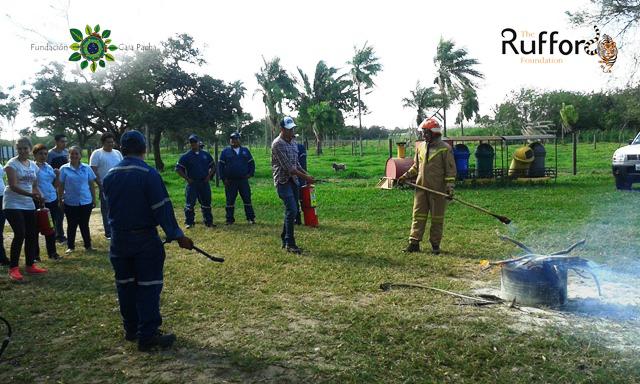César Javier Pérez Hurtado
Consolidate the outdoors environmental program Earthkeepers such as a conservation and educational strategy to change ecological understandings, values, attitudes, and behaviours of children (9 to 10 years old), to development of positive feelings and care for the natural world, the making of choices about their personal environmental behaviours, and to reinforce the conservation state of a rich natural area.

When Bernardo, the mayor of a rural municipality in Bolivia -after a multimedia presentation- finally understood that forests were, in fact, the water factories for his people and crops; he decided to approve the consolidation of an Environmental Fund in order to protect strategic watersheds. Although too often knowledge is not reflected in behaviour, just imagine if Bernardo and his childhood companions had understood at an early age the wondrous relation between forests and water. In that case, the fate of his municipality might have been different. But, was Bernardo ever exposed to environmental education addressing the importance of forests in the water cycle during his childhood? Given the “boom” in environmental education throughout Bolivia that started in the 198Os, it is very likely that he was exposed to a series of traditional environmental education programs during his childhood. But it is unfortunate that these programs had very limited impact.
That is why we identified a more appropriate methodology to present environmental education, to help children from the city and the rural areas perceive holistically the natural processes taking place on Earth, and to use it to promote the conservation of a natural place. This alternative education approach is known as Earth Education which developed the Earthkeepers program. The Earthkeepers is a 3-day outdoors program. This program supports and enhances the National Education Curriculum by focusing on the ecological concepts of Energy Flow, Cycles (air, water and soil), Interrelationships, and Change. The second half of the program takes place back in school and at home, where the young people are encouraged to examine their own lifestyle and reduce their impact on the earth and its limited resources.
This program aims to:
a) For 2016, directly benefit around 150 elementary students from different public and private schools in Santa Cruz.
b) Teachers who will also participate in the program will draw on their experiences with Earthkeepers to enrich classroom-based environmental curricula.
c) It should help ensure stability in a foundation where the majority of our work has been built on volunteerism.
d) Continuing help last-year university students from local universities gain work experience and develop thesis researches in environmental topics.
e) Contribute to the work of educators and policy makers improving environmental education in Bolivia on a national level.
f) Contribute to the quality of environmental education both in Bolivia and the rest of Latin America.